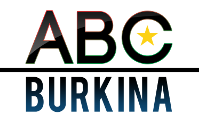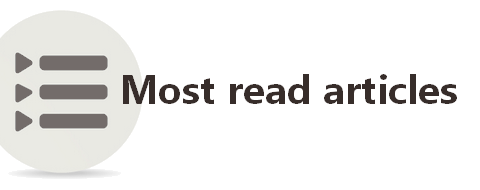Cotton – a case in point
Burkina Faso is the biggest producer of cotton in Sub-Saharan Africa, but since Abidjan is no longer available, following the post-election crisis in Ivory Coast, it has to export via the harbours of Ghana (Tema) and Togo (Lomé), according to information on Wednesday January 19 from an official source.
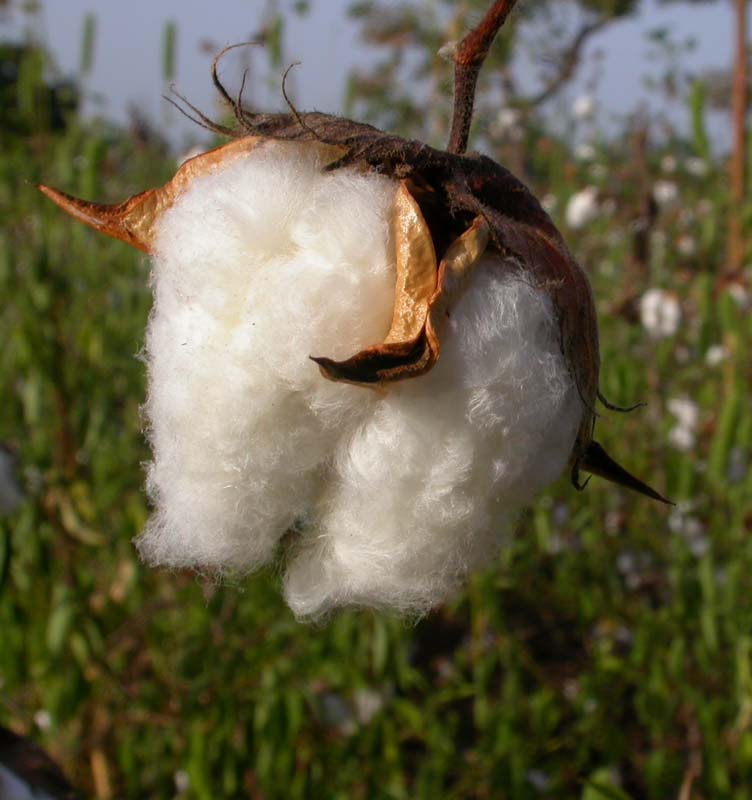
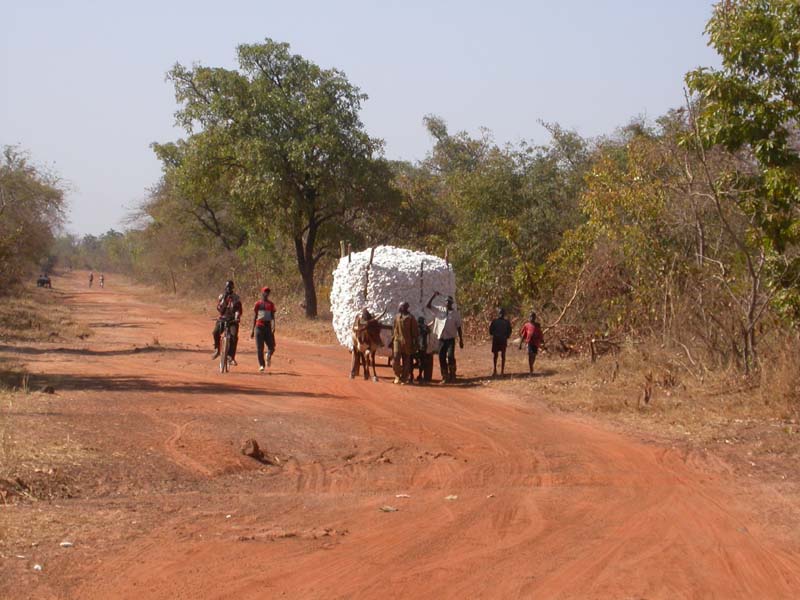 “Because of the Ivory Coast crisis we now have to redirect our cotton to the ports of Lomé and Tema..This will obviously mean additional costs” the CEO of SOFITEX the country’s largest cotton company
“Because of the Ivory Coast crisis we now have to redirect our cotton to the ports of Lomé and Tema..This will obviously mean additional costs” the CEO of SOFITEX the country’s largest cotton company
(Société des fibres et textiles du Burkina Faso) Célestin Tiendrébéogo declared in a statement to the press.
“Today we can no longer use Abidjan, since there is the risk that the cotton will not be despatched, due to problems with cargo ships or insufficient security around port facilities, he explained.
He estimates the additional cost to 25 CFA (1 EUR = 656 FCFA) francs/kg fibre cotton
The port of Abidjan is the maritime outlet from which Burkina Faso, but also Mali and Niger, all landlocked countries, import and export goods. In the past two years it has been the export route for 60% of Burkina Faso cotton.
It exports 80% of its cotton production to Turkey and Asian countries. This season the volume amounted to 475.000 ton, a drop compared to the previous 530 000 ton.
Approximately 20 000 ton of goods from Burkina are at present blocked at the port of Abidjan, according to sources close to the Burkinabè Council of freight operators (CBC, Conseil Burkinabè des Chargeurs).
L The Abidjan port is one of eleven economic entities of Ivory Coast subject to sanctions by the European Union, which together with nearly all of the international community has recognised Alassane Ouattara as the winner of the presidential elections of November 28. It has asked the outgoing president, Laurent Gbagbo, to leave power, but he refuses to do so.
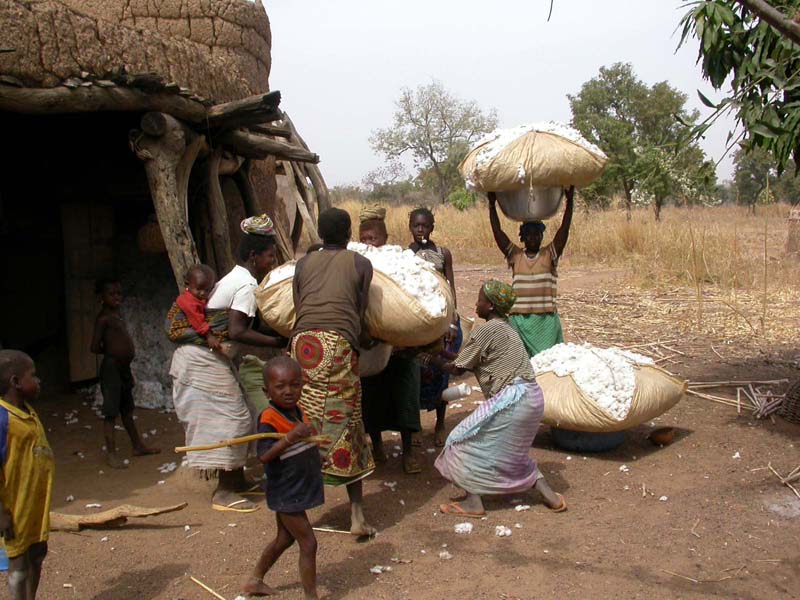
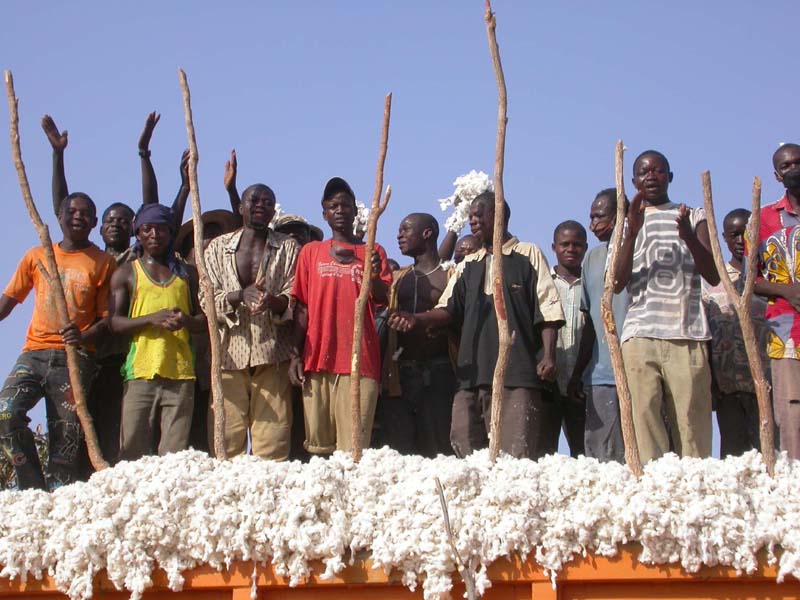 Burkinabè cotton producers should not wait to ask the question:
Burkinabè cotton producers should not wait to ask the question:
“Who is to bear the extra cost? ”The SOFITEX will no doubt be tempted to unload the additional expense on producers, by taking away the remainder of the reimbursement due to them.
A word of explanation:
On November 19th 2010, that is before the outcome of the presidential elections in Ivory Coast, the Association of operators in the cotton sector (Association interprofessionnelle du cotton du Burkina, AICB) declared on Thursday night in Bobo-Dioulasso that part of the additional reimbursement for the 2010-2011 harvesting season would be paid in advance (18 CFA francs). This will lead to an increase of the price of prime choice seed cotton from 182 to 200 CFA francs.
In view of the rising cotton prices, the AICB (an organisation of representatives from cotton companies and producers) want to galvanise producers by early payment of the additional reimbursement.
It was due to be paid in May this year, but the AICB wishes to anticipate payment, “because cotton prices are good and part of the profits have already come in”. Thus the cost of prime quality seed cotton (182 CFA francs) plus the reimbursement will amount to 200 CFA francs for the 2010-2011 harvesting season.
The remaining part of the reimbursement will be paid during 2011, when the cotton companies have checked their profits.
What will be left of the remaining reimbursements to producers, when the SOFITEX has paid the extra 25 francs/kg, generated by the crisis in Ivory Coast and the impossibility to use the port of Abidjan? Probably not much … Producers would be well advised to see to it that the “not much” does not turn into a “nothing at all”!
Source: Agence France Presse and Abidjan.net
Koudougou January 23rd 2011
Maurice Oudet
Director, SEDELAN
